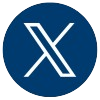Student Success Center
Master of Education (MEd)
Welcome!
As an online student, most of your interactions with the university will be done through various websites. For example:
- You’ll use your USD Email Address for all university-related communications.
- You’ll use Canvas for all of your coursework and assignments. See Canvas Tips and Tricks page.
- You’ll use your MySanDiego Portal for tuition payments and to access most campus resources.
- You’ll use this site, your Student Success Center, to get specific information about textbook information, deadlines, and more!
Your Program Coordinator
Ashleigh Zellmer
(619) 260-4749
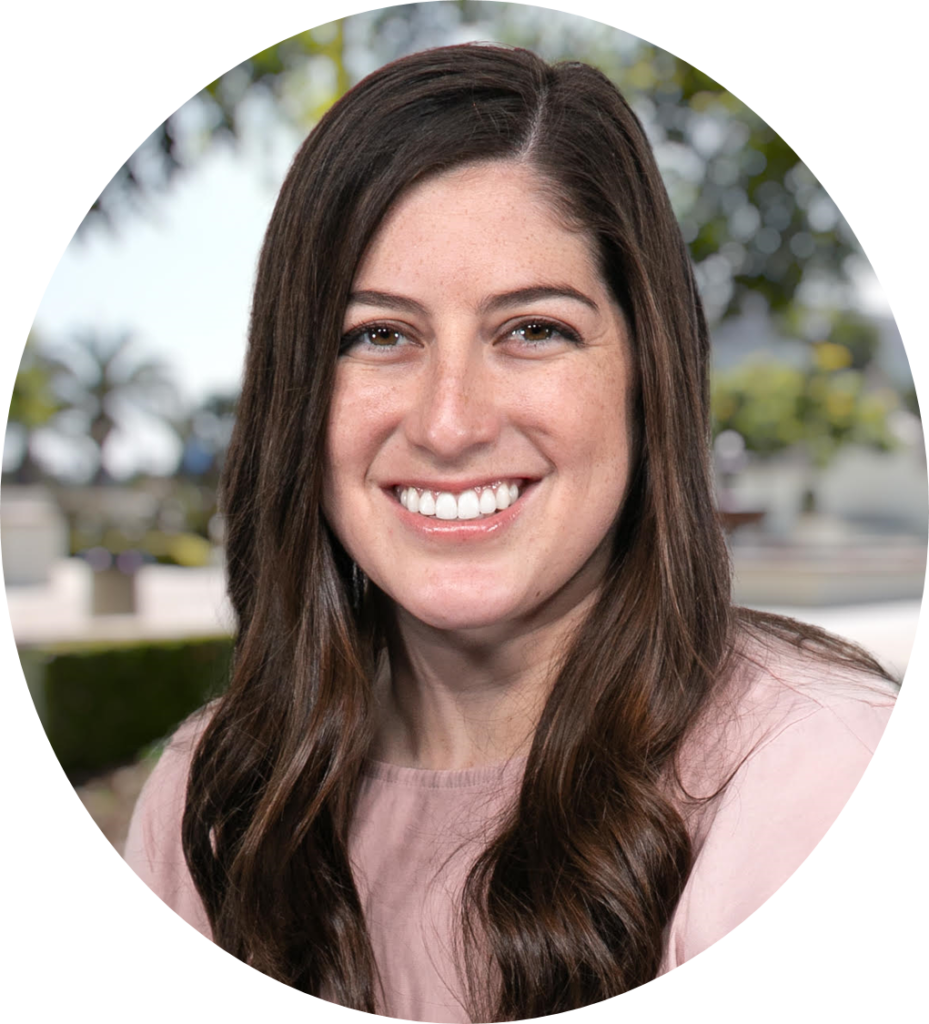

Your academic director
Joseph Lathan, PhD
(619) 260-5913
COMPLETE YOUR MANDATORY NEW STUDENT CHECKLIST
Our number one priority is you! Our team has prepared a checklist of items that will set you up for success and clarify all action items as a new student. After you are enrolled for your first term and receive a confirmation email from a member of our team, please complete and review all of the following before classes start.
1. View Your Mandatory New Student Welcome Webinar
This webinar will go over a comprehensive look at your program and what to expect as an online learner including resources and tips for success. Each webinar should last around 30-40 minutes. Once you have been registered for classes and receive a confirmation email from our team, you will be given the link to schedule your new student check-in call.
2. Schedule Your New Student Check-in Call
In this call, you’ll “meet” a member of your Student Success Team for your program. Once you attend the welcome webinar, you will be given the link to schedule your new student check-in call. This will be a chance for us to answer any additional questions you have before you start your first term. Please be sure to have any Canvas-related, program-related, or finance-related questions prepared.
3. Complete Your Canvas Orientation Course – Due August 30, 2024
Once you have been registered in your classes, you will be able to access your New Student Orientation Course on Canvas within 4 hours. When accessing Canvas, please make sure to use Firefox or Chrome as your browser.
The New Student Orientation course is designed to help you navigate your way around your course’s layout prior to beginning your first class. You will learn where to find the syllabus, course schedule, assignments, and discussion boards.
Your Orientation is mandatory, and must be completed before the first day of class—so we encourage you to get started! Please plan to spend about 16-20 hours completing the Orientation course. You can move through the Orientation at your own pace, so schedule your time accordingly.
Looking for assistance?
4. Finalize Your Tuition Payment Plan
We recommend that students start this planning early as some funding sources can take some time to process. Tuition payments should be completed in full by the first day of the semester. Visit the “Tuition and Payment Methods” section for more information.
5. Review your Student Handbook
Please make sure to review your student handbook prior to the first day of class, and reference it as needed throughout your program. The handbook is where you can find information on academic expectations, drop and refund policy, technology requirements, curriculum, frequently asked questions, and more.
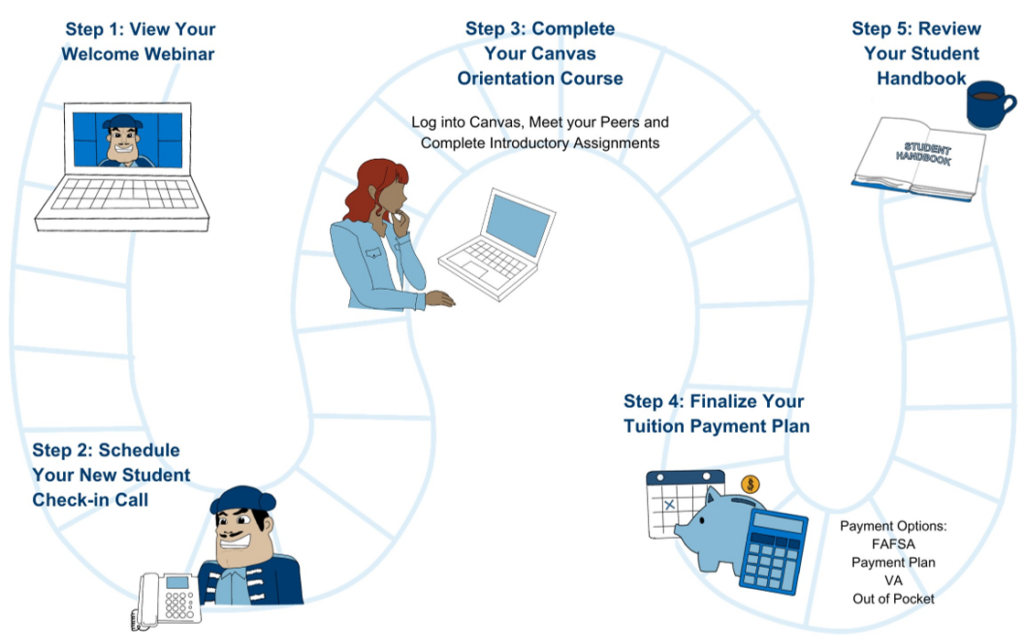
IMPORTANT DATES
Below is a list of significant dates regarding the registration process, payment deadlines, and other important academic and program deadlines.
Fall 2024 Dates and Deadlines
| Important Dates | Date |
|---|---|
| Application Deadline | August 2, 2024 |
| Registration Opens | July 1, 2024 |
| Registration Deadline | August 16, 2024 |
| Orientation Course Due Date | August 30, 2024 |
| Last Day to Drop with 100% Refund | September 2, 2024 |
| Payment Due Date | September 3, 2024 |
| Semester Begins | September 3, 2024 |
| First Course Start Date | September 3, 2024 |
| Last Day to Drop with 95% Refund/ Drop Deadline | September 6, 2024 |
| Last Day to Withdraw from Course A | September 30, 2024 |
| First Course End Date | October 21, 2024 |
| Second Course Start Date | October 22, 2024 |
| First Course Final Grade Submission Due Date | November 4, 2024 |
| Last Day to Withdraw from Course B | November 18, 2024 |
| Second Course End Date | December 9, 2024 |
| Semester Ends | December 9, 2024 |
| Second Course Final Grade Submission Due Date | December 23, 2024 |
Spring 2025 Dates and Deadlines
| Important Dates | Date |
|---|---|
| Application Deadline | December 2, 2024 |
| Registration Opens | November 1, 2024 |
| Registration Deadline | December 16, 2024 |
| Orientation Course Due Date | January 3, 2025 |
| Last Day to Drop with 100% Refund | January 6, 2025 |
| Payment Due Date | January 7, 2025 |
| Semester Begins | January 7, 2025 |
| First Course Start Date | January 7, 2025 |
| Last Day to Drop with 95% Refund/ Drop Deadline | January 10, 2025 |
| Last Day to Withdraw from Course A | February 3, 2025 |
| First Course End Date | February 24, 2025 |
| Second Course Start Date | February 25, 2025 |
| First Course Final Grade Submission Due Date | March 10, 2025 |
| Last Day to Withdraw from Course B | March 24, 2025 |
| Second Course Final Grade Submission Due Date | April 28, 2025 |
| Semester Ends | April 14, 2025 |
Summer 2024 Dates and Deadlines
| Important Dates | Date |
|---|---|
| Application Deadline | April 8, 2024 |
| Registration Opens | March 4, 2024 |
| Registration Deadline | April 19, 2024 |
| Orientation Course Due Date | May 3, 2024 |
| Last Day to Drop with 100% Refund | May 6, 2024 |
| Payment Due Date | May 7, 2024 |
| Semester Begins | May 7, 2024 |
| First Course Start Date | May 7, 2024 |
| Last Day to Drop with 95% Refund/ Drop Deadline | May 10, 2024 |
| Last Day to Withdraw from Course A | June 3, 2024 |
| First Course End Date | June 24, 2024 |
| Second Course Start Date | June 25, 2024 |
| First Course Final Grade Submission Due Date | July 8, 2024 |
| Last Day to Withdraw from Course B | July 22, 2024 |
| Second Course End Date | August 12, 2024 |
| Semester Ends | August 12, 2024 |
| Second Course Final Grade Submission Due Date | August 26, 2024 |
Download a pdf of your academic calendar
Class Registration Directions
You have most likely already filled out an Enrollment Agreement, which enables our team to register you for classes each term. No further action is required on your part.
If you are not able to register for both of your courses in a given term, please contact your program coordinator immediately. This often happens for students who need to take a leave of absence.
Textbook information
Students are required to have their textbooks on hand by the first day of class. Unless otherwise specified, students may select any vendor they prefer (such as Amazon.com, Half.com, Alibris.com, etc.) to purchase their course materials. In the event a specific vendor is required, it will be specified in the course materials list. The best way to ensure that you have the correct book is to search by the ISBN number(s) listed on the book list.
Physical copies of books are not on hand at the USD Torero Store. The USD Torero online store does offer price comparisons for different online vendors for some books.
Although all textbooks for all courses are listed, students only need to purchase the items for the classes they are taking for the semester.
Digital Inclusive Access (IA) – Integrated VitalSource Textbooks
If your course is indicated to have a “Digital Inclusive Access” textbook, you do have the option to use the integrated Vitalsource e-textbook without needing to purchase a textbook through an outside vendor. For more information, view the “Digital Inclusive Access” FAQs document.
- Students are able to access the e-textbook directly in the course without worrying about purchasing the wrong version or textbook!
- If your course is indicated as using “Digital Inclusive Access” on the textbook list, please note that you must opt-out within the first 7 days of each course to avoid being charged for the guaranteed-lowest price textbook.
- If you do intend to use “Digital Inclusive Access”, no further action is required after you create a Vitalsource account.
- No refunds can be issued once the textbook charge has been assessed.
By using Vitalsource e-Textbooks, students are able to use study tools in Bookshelf such as highlighting, printing limited pages/chapters, sharing notes, and using the Bookshelf CoachMe tool to test their learning while they read.
PAYing for your program
Tuition at USD is billed per semester, not per course. Payment (or enrollment in an official USD payment plan) is always due by the first day of the semester. Students may not carry balances from one semester to the next.
Accounts with outstanding balances after the official payment due date may be subject to course cancellations/removal or a student account hold during the semester; related holds can prevent upcoming registration, graduation, or obtaining transcripts.
Remember: tuition is always due by the first day of each semester.
Program Tuition
Once you have been registered for your courses, your student account will reflect the appropriate tuition costs according to your program. Your program’s tuition is the following:
- Per Unit (classes are typically 3-units) = $710
- Per Semester (assuming 6-units per semester) = $4,260
- Total Program Cost (including 5 semesters) = $21,300
Students who need to re-take or withdraw from a course may need to pay additional fees according to the Refund/Drop Deadline policies listed in your Student Handbook.
If you have any questions about your Student Account, please reach out to the One Stop Center via email at [email protected] or phone at 619-260-2700. All costs and fees are subject to change and are based on the academic year of enrollment.
Refund Policy
Students will be registered for their prescribed courses each semester. All courses must be dropped prior to the first day of the semester to receive a 100% tuition refund and within the first three days of the start date of the semester to receive a 95% tuition refund. No refund (reversal of tuition) will be provided after the third day of the semester for any class.
DEGREE PROGRESS and COMMENCEMENT
DegreeWorks
You can track your progress toward earning your degree using the Degree Works feature in your MySanDiego student portal. Degree Works shows you which courses you have completed, grades, cumulative GPA, any outstanding graduation requirements, and more!
To access Degree Works:
- Log in to your MySanDiego student portal.
- Under the “Torero Hub” tab, click on “My Academics.”
- On the right-hand side under “My Academic Resources”, click on “Degree Works.”
Petition to Graduate
Submitting your petition to graduate is a requirement for every student. About a semester before your final term, you will be reminded by your Program Coordinator to submit your petition to graduate. Once completed, your Academic Coordinator will review your academic record and contact you if there are any outstanding requirements or issues.
Commencement and Diploma Details
If you are planning on participating in the commencement ceremony (which means walking in your cap and gown here on campus), you will be invited to come to the University of San Diego in the month of May to participate in the ceremony. Commencement details and information will be sent from your Student Success Team around the month of February. Please note, there is only one commencement ceremony each academic year. Fall graduates will be invited to the commencement ceremony the May after they graduate, while Summer graduates will be invited to the commencement ceremony the May before they graduate.
The registrar will process their final audit of the degrees 6-8 weeks after grades are posted for your final semester. Once the degree is conferred in the system, the Registrar will order your diploma from the vendor and the vendor will send it to you directly to the address that was listed on your petition to graduate. Mailing time is an additional 6-8 weeks from the date of order, and you will likely receive your diploma in the mail in 3-4 months after you have completed your degree requirements. *Please note, if your mailing address changes after you submit your Petition to Graduate, please notify the Graduate Records office at (619) 260-2217 or [email protected].
Course Requirements
University of San Diego Masters Degree in Education consists of 10 courses (3-units each) for 30 units of coursework. Your Masters in Education online program consists of five foundation courses including a capstone action research project as well as five specialization courses. You may begin your study in any semester with any of the courses offered. The Capstone Seminar is the final course in the program and builds on the knowledge gained in the research and specialization courses.
Your Program’s Course Carousel
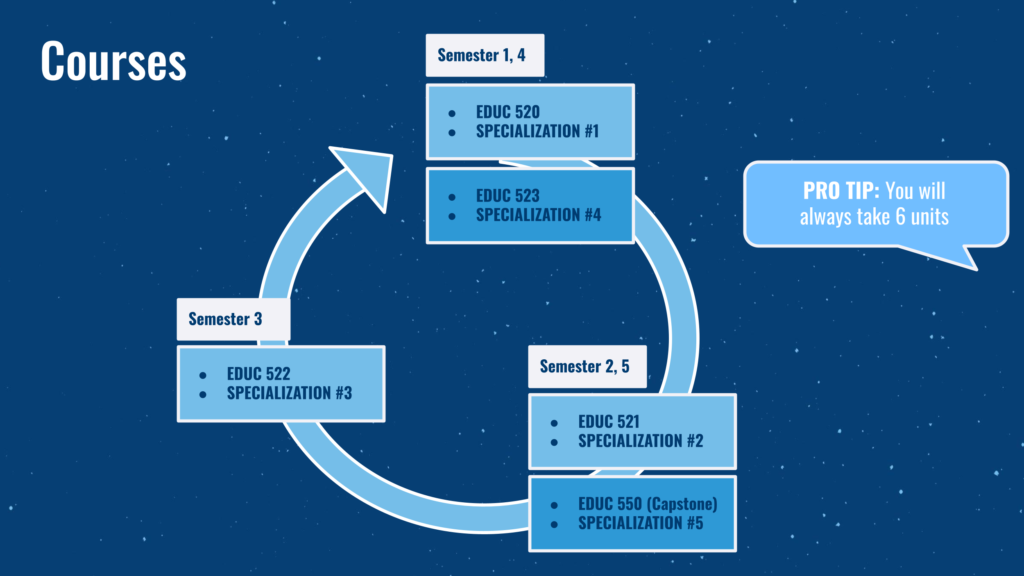
Course Titles and Descriptions
Family, School and Community Partnerships (EDUC 501)
This course focuses on the structure, common elements, and impact of successful and effective family, school, and community partnerships. It is designed to encourage the development of teachers’ and other educators’ awareness of students’ family and community histories, funds of knowledge and sociocultural capital, and it requires a close examination of attitudes, misconceptions, and expectations that impact relationship building with families and communities. This course exposes candidates to different types of home-school-community partnerships, current knowledge on community-based frameworks, and programs serving families who traditionally do not participate in schools. Additionally, this course facilitates and guides the analysis and development of instructional approaches and programs that foster relationship building, communication, student achievement, and families’ knowledge of the school/classroom curricula and educational system.
Instructional Leadership (EDUC 503)
This course addresses the development, implementation, and assessment of rigorous and coherent systems of curriculum, instruction, and assessment designed to promote each student’s academic success. Targeted focus on effective strategies to develop the professional capacity of teachers and other school personnel through effective hiring, coaching, mentoring, and accountability structures.
Data Driven Decision Making (EDUC 506)
This course is a rigorous exploration of how school leaders use data, including standardized and school-based assessments, to drive continuous improvement through site-based decision-making for the express purpose of promoting equitable and culturally responsive opportunities for all students.
Creativity and Innovation in Science, Technology, Engineering, Arts and Math (EDUC 507)
Examination of points of convergence and divergence in the creative processes of artists, scientists, mathematicians and engineers. Candidates will develop a strong foundation of theoretical and applied STEAM knowledge, practical guidance in the development of their own unique STEAM toolkits and opportunities to experience and experiment with STEAM learning in their classrooms.
Artistic Modeling and Representation in Science and Math Education (EDUC 508)
An exploration of educational strategies and classroom approaches that leverage the multi-dimensional connections between artistic and scientific observation, inquiry and investigation to strengthen students’ content knowledge, critical thinking skills and capacity for innovation.
Engineering Design Process in Math and Science Education (EDUC 509)
Investigation of the intersection between conceptual understanding and real-world application. Candidates will explore strategies for using creative representation, exhibition and project-based learning to enhance student understanding and ensure knowledge transfer.
Ethical Leadership in an Era of School Reform (EDUC 515)
Contextualized within the evolving high stakes accountability context of public K-12 education, this course will consider the challenges and opportunities facing educational leaders. The course will examine the history and impact of national, state, and local reform movements, and explore how educational leaders develop, advocate for, and enact a shared mission and vision for excellence and equity within schools and districts. The course will include a focus on ethical and professional norms for school leaders and address legal rights and responsibilities.
Digitized Learning with Technology (EDUC 517)
This course will address virtual learning by using technology and digitized learning education material that is accessible for all types of learners. Students will learn the foundations and frameworks of educational technology. Students will learn how to use digital content via the Internet and technology tools to transform traditional instruction. Students will also investigate professional development opportunities to keep them current with their profession and the ever-changing technology field.
Changemaking with Technology (EDUC 518)
Changemaking involves taking creative action to solve a social problem. Schools and companies are incorporating emerging technologies (e.g., coding, robotics, 3D printing, Virtual Reality, Design Thinking, and interest/strengths exams such as the RIASEC) to enhance learning opportunities and transform instruction. This course provides students with meaningful learning experiences using technology to promote social change. Students will be challenged to think about how technology impacts our daily lives, the way we learn, and how we utilize it in our day-to-day lives. Students will also gain an understanding of how technology can be leveraged to personalize learning for all types of learners including adults. This course is for students to gain innovative and engaging teaching methods for developing 21st-century skills and digitized learning.
Instructional Design for Teacher Leaders (EDUC 519)
This course addresses the systematic design of learning experiences and environments. Students analyze, apply, and evaluate principles of instructional design to develop education and training materials spanning a wide range of knowledge domains and instructional technologies. Students learn about the use of instructional design (ID) models and predominant learning theories (behaviorist, cognitive, and constructivist) to create effective learning experiences. Learners explore various elements of the instructional design process, including needs assessment, instructional problems, learner characteristics, instructional objectives, content sequencing, instructional strategies, instructional delivery, evaluation instruments, instructional resources, media selection, and formative evaluation.
Social Justice and Educational Equity (EDUC 520)
Analysis of the American educational system with a particular focus on issues of diversity, inequity, conflict and social justice within a school context. Historical case studies, contemporary policies and practices, and international comparisons compel consideration of the social construction of education.
Learning Cognition (EDUC 521)
Explore key cognitive studies on human cognition and learning. You will critically discuss research and contemporary debates on cognitive processes, learning, memory, reasoning, problem-solving, developmental mechanism, cognitive styles, motivation, and the socio-cultural foundations of learning with an emphasis on the implications for educators and educational researchers.
Educational Research Methodology (EDUC 522)
Introduction to the major educational research methods and paradigms with an emphasis on reflective, practitioner-directed inquiry. The course encompasses quantitative methods, qualitative methods, mixed methods, and action research frameworks. Particular emphasis is placed on action research as a reflective and collaborative inquiry for improving educational practices.
Qualitative Methods in Educational Research (EDUC 523)
Applied exploration of qualitative research methodologies such as ethnography, grounded theory, case-study and cross-case comparisons, surveys, observations, document analyses, focus groups and interviews. Opportunity to learn and apply a variety of techniques to analyze data and interpret findings.
Universal Design Through Technology (EDUC 524)
Universal Design for Learning (UDL) is a teaching approach that helps provide an equal opportunity for all different types of learners. UDL through technology offers flexibility for instruction, accessibility of educational material, and mastery of content using multimedia. Students will learn the “what” of learning, relating to the need to present material in multiple formats. Students will also examine the “how” of learning, by expressing the understanding of content and concepts through assessment options. And finally, students delve into the “why” of learning by studying learning styles and using multi-modalities. Students in this course will use the UDL framework to plan, develop, and evaluate technology-based on various learning styles. This is accomplished by using technology and UDL framework to promote inclusion and equity in the classroom.
STEAM and Special Student Populations (EDUC 528)
Investigation of classroom practices that contribute to historical and contemporary inequities in learning outcomes in STEM subjects for students based on gender, race, language and need. Exploration of how STEAM methodologies provide opportunities to increase equity and improve outcomes for all students.
Designing Learning Environments for All (EDUC 533)
Theoretical and practical exploration of the principles of Universal Design for Learning (UDL). Investigation of brain research into recognition networks, strategic networks and affective networks and consideration of how these networks can inform instructional design decisions.
Identifying and Responding to the Needs of Diverse Learners (EDUC 538)
Examination of the variability of ability and experience among students. Investigation and application of assessment tools and instructional design strategies that provide differentiated support for the success of all students.
Capstone Seminar (EDUC 550)
The capstone seminar is the final course in the online MEd program sequence. This course supports candidates as they engage in an action research project appropriate to their area of specialization and responsive to the needs of their classroom. The AR project is a requirement to earn a degree in this program. Prerequisites: EDUC 520, 521, 522, 523.
Leading Professional Learning Communities (EDUC 555)
Candidates will better understand the critical role they play in creating a climate of continuous, systemic improvement in schools through the establishment of professional learning communities and the concurrent development of teacher leadership. Candidates will develop the capacity to communicate and lead others in continuous improvement and monitoring of school improvement efforts based on student and school data including developing strategies for designing data collection, organizing data analysis, and developing instructional improvements strategies based on data trends.
Strategic Planning and Management of Health Systems (ENLC 557)
Emphasizes strategic planning and management as requisite to the growth and survival of health care systems. Acquaints students with the language, processes, tools, and techniques of strategic planning and marketing that will enable them to contribute effectively to strategic thinking and action in health care systems.
Teaching Students on the Autism Spectrum (EDUC 586)
Exploration of our evolving understanding of autism in the research literature, educational practice and popular imagination. Examination and application of instructional strategies for supporting autistic students in communication, organization and social interaction.
Co-Teaching: Collaborating in an Inclusive Environment (EDUC 587)
Examination of research, policy and practice of co-teaching and collaboration models that support general education and special education students in inclusive classrooms.
Disability in Education Policy and Law (EDUC 588)
Investigation of the historical, philosophical, legal, political and sociological constructions of disability in education. Analysis of the application of current law to the classroom and school policies and practices.
Student Resources
This list is helpful resources that will set you up for success. Haven’t written in APA formatting since your undergraduate program? We’ve got you covered! Want to know what type of computer you will need? No problem. We have listed helpful resources below.
Technical Requirements
You must own or have unrestricted access to a computer for this program. A fast Internet connection is also mandatory.
Courses will utilize a variety of technologies and multimedia. To complete course activities and to access course content, please verify that you have the following technologies and plug-ins available:
- Browser Plug-ins – Windows Media Player, QuickTime, Flash, Shockwave, Adobe Reader, and Java.
- Mozilla Firefox is the recommended browser. Google Chrome is the second preferred browser.
- Microsoft Office is required. If you are using Office 2003 or earlier, download and install the Microsoft Office Compatibility pack.
- Speakers or headset – to listen to multimedia.
- Webcam – for recording video.
- Email – To contact your faculty.
- High-speed internet connection strongly encouraged (DSL or better)
Graduate Writing Expectations and Tips
All writing assignments must be formatted according to APA standards. Discussion posts must contain the appropriate APA citations. If you want additional writing support, we recommend Purdue Online Writing Lab (OWL@Purdue). In addition to general writing support, the website includes a special section dedicated to APA formatting guidelines.
Another helpful writing resource is the School of Leadership and Education Sciences (SOLES) Graduate Student Writing Center. Enrolled students can submit assignments for review by a writing professional.
Download Microsoft Office 365 (Free for USD Students)
Students at the University of San Diego are able to download Microsoft Office 365 for free! If you don’t have it already, you can download the Microsoft Office 365 suite using your USD student email.
TimelyCare – Telehealth for USD Students
TimelyCare is a provider of 24/7, no-cost telehealth services for USD students to address common conditions that can be safely diagnosed and treated remotely. TimelyCare services are available at no cost to the student. Services include:
- Live and on-demand self-care sessions (yoga, breathing, stretching)
- Access to on-demand counselors for emotional health support
- Access to schedule a session with a licensed counselor (up to 12 times per year)
- View the Nurturing Balance Webinar Recording to learn about more resources
Online MEd Student Handbook
The handbook is where you can find information on academic expectations, drop and refund policy, technology requirements, curriculum, frequently asked questions, and more.
External Tutoring Resource
USD does not offer subject-specific tutoring resources, so students who are looking for tutoring support are encouraged to identify a tutor using Wyzant.com. Please note that Wyzant is not a USD-managed resource, so use them at your own discretion.
Student Code of Rights and Responsibilities for Graduate Students
It is the policy of the University of San Diego to adhere to the rules and regulations as announced in this brochure or other University Publications. The University nevertheless hereby gives notice that it reserves the right to expand or delete or otherwise modify this online publication whenever such changes are adjudged by it to be desirable or necessary. Changes will be made periodically as needed.
USD Economic Resources List
USD’s Case Management team has compiled a list of on-campus (local to San Diego) and national economic resources to help students find assistance with a variety of life aspects such as housing, food, mental health, parenting, etc. If you have a need or concern that isn’t addressed by the resources included in this list, please reach out to your Program Coordinator for further assistance. Based on the support, we may refer you to schedule an appointment with a case manager.
First-Generation Student Resources
USD welcomes first-generation college and first-generation graduate students. Please view the resources below to connect with your first-gen peers!
- Visit the USD First-Generation website.
- Free & Virtual First-Generation Graduate Student Symposium.
- Instagram accounts: @usd_fgsa and @usdfirstgen.
- Contact the First-Gen Action Team at [email protected]
Military Student Resources
USD provides student-focused services to all USD military-connected students, including student veterans, active-duty, dependent children, and spouses.
- Get started by requesting your Request to Certify each semester.
- Explore Military Scholarship Opportunities.
- Join the Student Veteran Organization .
- Leverage the partnership between USD and 50strong that brings together employers and veterans.
- Upon graduation, connect with the Alumni Veteran Network
USD Campus Partner Email Opt-Out
Get too many emails? Follow our email opt-out guide to optimize your USD email experience.
DACA/Undocumented Student Resources
- Please view the USD information trifold for current and prospective students. It is also available in Spanish.
- Review this website which includes some useful information and connections to the undocumented student community, state and national policies, information on graduate and professional school access, retention and success. It is a living document that will be updated regularly and include any new resources that campuses and organizations develop.
Academic Standards for Artificial Intelligence (AI)
- With the rise of AI writing assistants, students must ensure that they use this new technology ethically and honestly. Consult this document for guidance.
University of San Diego Campus Resources
- The USD Campus is available to all of our students and includes these additional resources.
Canvas @ USD
In your program, you can think of Canvas as your virtual tool to share information with professors and peers. You will use Canvas to access your course content, find course syllabi, review your assignments, and more. Be sure to use your USD credentials to log in. If you have any difficulty logging into your course, be sure to contact ITS at (619) 260-7900 or [email protected].
Netiquette Guidelines
The concept of netiquette covers proper communication online. Read our guidelines to help cultivate a supportive and productive online environment.
your partners toward success
At USD, you join a community of individuals who are all committed to one common goal: your success. As you familiarize yourself with your team, take the opportunity to virtually meet and connect with the resources available to you as a student. Click on the profiles below to learn more about each office or staff member and watch a brief video about their role in supporting you through graduation.

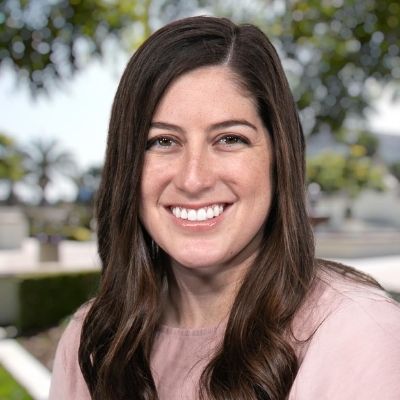
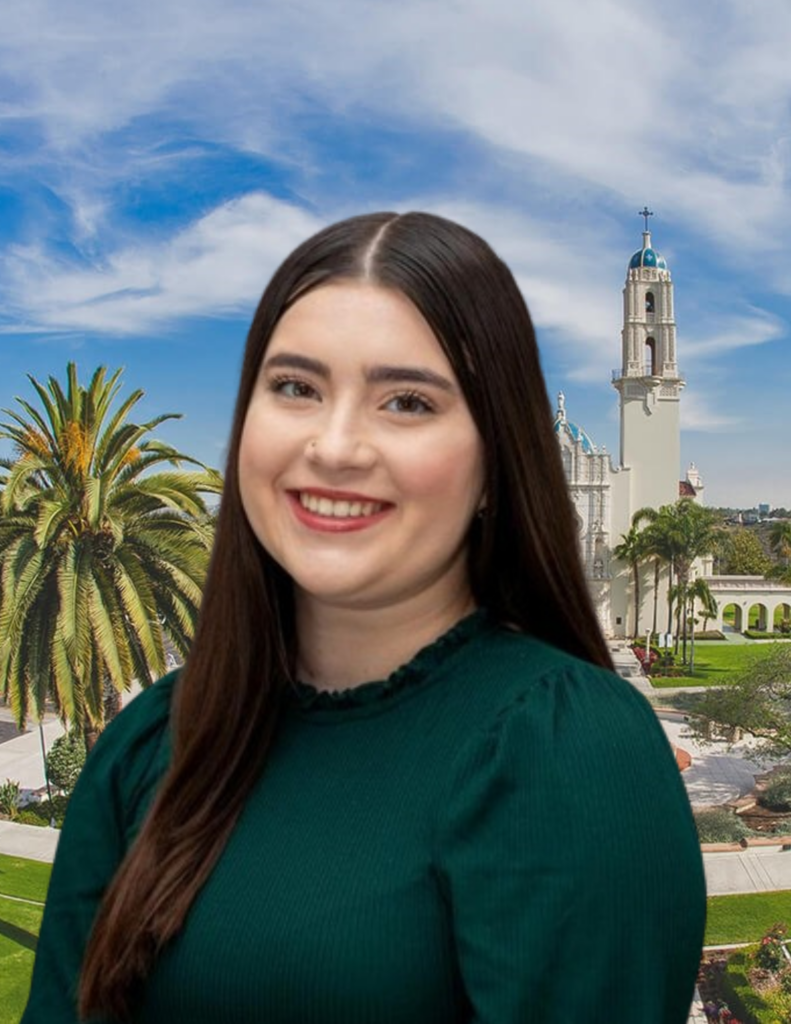

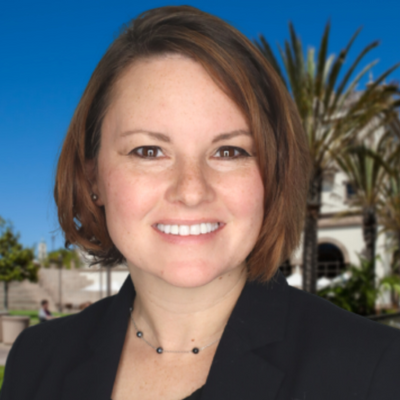









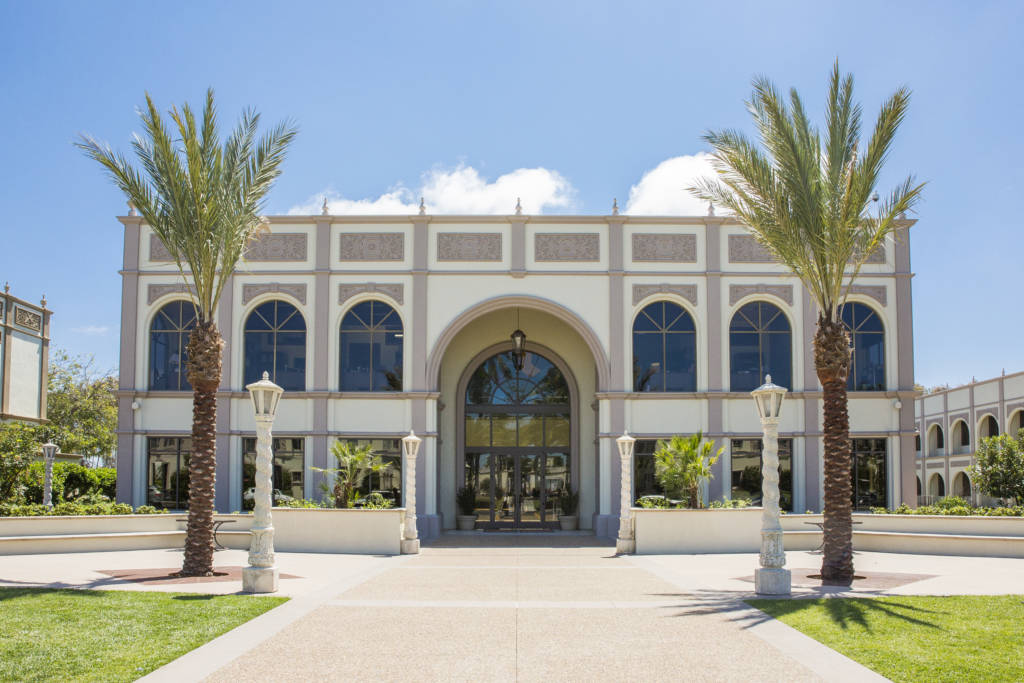
USD Quick Links
- USD Directory (For Faculty or Staff Contact Information)
- One Stop Student Center
- Health and Wellness
- SOLES Graduate Writing Center
- Military and Veterans Program Center
- Disability and Learning Difference Resource Center
- Copley Library
- Career Development Center
- Campus Recreation (Remote and On-Campus Classes Offered)
Career and professional resources
Whether you’re hoping to find a new job or earn a promotion, USD has a wealth of resources available to prepare you for your dream role.
Frequently Asked Questions
How much is tuition for the MEd program?
Tuition for the MEd program is $710 per unit. With a total of 30 units, the full cost of tuition for the program is $21,300.
Tuition amounts shown on this website, or in other university publications or web pages, represent tuition and fees as currently approved. However, the University of San Diego reserves the right to increase or modify tuition and fees without prior notice and to make such modifications applicable to students enrolled at USD at that time as well as to incoming students. In addition, all tuition amounts and fees are subject to change at any time to correct errors. Please note that the displayed tuition covers only the cost of courses, and additional expenses such as books and other fees are not included.
How many units is my program?
The MEd program is a total of 30 units.
Students will enroll in two prescribed courses each semester for a total of 6 semester units.
Is this a full-time or part-time program?
The University of San Diego considers 9 or more units as full-time student status. Your program is designed to be part-time, and students enroll in just 6 units per semester. There is no full-time option for this program.
How do I register or drop classes?
All students are manually enrolled each semester by the USD Student Success team. If you are not able to enroll for a term or if you need to drop your courses, it is your responsibility to notify your Program Coordinator. All students will be held to the respective drop deadlines and refund schedule detailed in your Student Handbook.
Where do I find my bill and how do I pay it?
Login to your my.sandiego.edu student portal. Under the “My Student Account” tab, review the tutorials for directions on how to view and pay your bill, set up a payment plan, and enroll in eRefund (Direct Deposit). View the “Tuition and Payment Methods” on your Student Success Center for further details.
Where can I view my final grades?
Log into your my.sandiego.edu student portal and navigate to the “Torero Hub” section on the sidebar. Click on the “My Academics” tab and locate the “View My Grades” link in the top-middle section. Alternatively, you can view your program progress at a glance using the “Degree Works” link.
If you notice a grade inconsistency between Canvas and your MySanDiego portal, please email your instructor to verify what the final grade should be. Your instructor has the ability to update the posted grade.
How do I see my degree plan and track my progress?
Log into your my.sandiego.edu student portal and then use the “Degree Works” link to view your degree audit.
You can find the “Degree Works” link in the Torero Hub under the “My Academics” page. If you are interested in requesting a tailored degree plan, please email [email protected].
What if I need to take a break from courses?
If you need to take time off from your program, please email your Program Coordinator or the Student Success team at [email protected]. Since you have submitted your enrollment commitment, our team will automatically register you in courses each term unless you have previously notified the team about taking a break.
How do I order transcripts?
To order your official, unofficial, or e-transcript(s), view the transcript ordering options page. Otherwise, you can view unofficial/order official transcripts through your MySanDiego portal. Under the “Torero Hub” sidebar option, click on the “My Academics” page, then click on “Request Official Transcript” under the “My Classes” section.
When will I get my diploma?
Congratulations on finishing your program! Diplomas are mailed about 6-8 weeks after the degree requirements have been met and processed. Diplomas are mailed to the current address on file at the time degree requirements are completed. (To check your address information, login to your my.sandiego.edu student portal and view your personal information under My Torero Services.)
You will first be emailed a copy of your e-diploma from Parchment prior to receiving your mailed physical diploma.
Who do I talk to if I have additional questions or concerns about my program?
Throughout your program and after graduation, your Student Success team is here to help! We recommend contacting your Program Coordinator directly, but you can also email our team address at [email protected].
In addition to our team, your Academic Director is a great resource!
Where can I find some writing resources?
All writing assignments must be formatted according to APA standards. Discussion posts must contain the appropriate APA citations. If you are unfamiliar with APA formatting, or simply require additional writing support, we recommend referencing the Purdue Online Writing Lab (also called OWL@Purdue). In addition to general writing support, the website includes a special section dedicated to APA formatting guidelines.
To further support your writing, we highly recommend using the School of Leadership and Education Sciences (SOLES) Graduate Student Writing Center. Students are encouraged to submit written course assignments via the digital submission form for online feedback from a professional writing coach. See site for details.
What should I do if I miss a week of class?
This course moves very quickly, and it is important that you turn in all assignments on or before their due dates. If, because of an emergency, you have missed a week or more of course work, please contact your professor immediately to inform them. While there is no guarantee that you will be allowed to make up your work, informing your professor early is the best way to get back on track and finish your course successfully.
Please do not wait more than a week without informing your professor. If your instructor’s email is not already visible on the Canvas course, please use the USD directory to find their contact information.
What can I expect for deadlines in my course?
The 7-week courses traditionally follow a weekly pattern with three important days:
- Tuesdays – When the class/modules start. It’s recommended to read the Module Overview, review readings/media, and begin to think about ideas for the discussion board.
- Fridays – When the initial discussion board posts are due. Remember that posts are due before 11:59 PM PST.
- Mondays – When discussion board replies and assignments are due. Most discussion boards expect 2 replies per week.
Please note that there may be some exceptions to this structure. Always refer to the syllabus for deadline details. Please contact the course instructor with any questions.
What are the course surveys? Do I have to complete them every course?
The course surveys are an opportunity to give your feedback on the course assignments, instructors, pacing, workload, learning management system, accessibility, etc. The feedback is reviewed by school leadership and used to determine how courses should be improved for future iterations. All surveys are completely anonymous – which is why your instructors have to make public announcements asking for everyone to submit their surveys. Feedback in the survey will not affect your final grade.
Course surveys traditionally open during the final weeks of the course and close before final grades are posted. The instructors and USD Student Success Team will remind you to complete these surveys for each class. Your program appreciates the time you take to improve the student experience!


